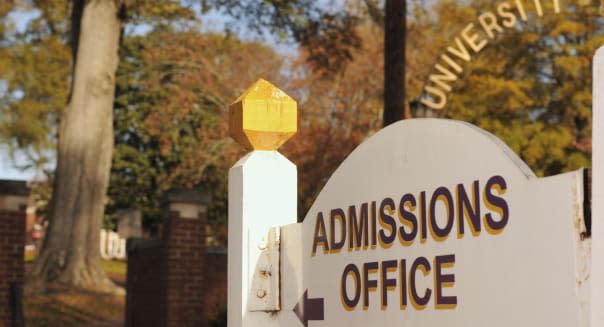Colleges May Penalize Students Over Preference on Financial Aid Applications

By Liz Weston
LOS ANGELES -- College applications aren't fraught enough, so here's something else to worry you. The order in which you list your preferred colleges on federal financial aid applications could be used against you.
Colleges are keenly interested in what's known as "FAFSA position" -- the order in which high school students list their prospective institutions on the Free Application for Federal Student Aid (FAFSA). Students can list up to 10 schools to receive their financial aid information, and the ones they list first strongly predict which enrollment offers they're likely to accept, college consultants say.
The Department of Education releases each student's line-up to all of his or her prospective colleges. That allows the institutions to see how they rank with students and exactly which schools they are competing against.
Most applicants don't realize this information is shared, and they have no idea their lists could be used to affect their admissions offers or their financial aid packages, said David Hawkins, director of public policy and research for the National Association for College Admission Counseling in Arlington, Virginia.
"The idea that what students may be offered could be significantly altered by the use of the FAFSA position is highly problematic," Hawkins said.
A recent Inside Higher Ed article detailed some of the ways that information can be used against students. A university concerned about its "yield" -- a closely-watched measure that tracks how many accepted students actually enroll -- may not extend an admission offer if the university is near the bottom of an otherwise qualified student's list, for fear the offer will be rejected.
A college at the top of a student's list, on the other hand, may not feel compelled to offer generous financial aid, since the student is seen as likely to accept without it.
Colleges don't admit to these tactics publicly, but consultants who advise families on college selection say it's an open secret that they occur.
%VIRTUAL-article-sponsoredlinks%"All colleges have the goal of admitting the best students they possibly can at the best price they possibly can," said Deborah Fox of Fox College Funding in San Diego, which advises affluent families on ways to reduce their college bills. "I strongly believe that FAFSA position ... is just one of the tools they use."
College officials and consultants who advise them insist that such practices aren't widespread. Schools are far more likely to use FAFSA position to size up their competition and to predict enrollment, they say. But even the defenders acknowledged other ways in which FAFSA position could negatively affect prospective students.
Withholding Offers
Several of those I interviewed were skeptical that colleges would routinely use FAFSA position to withhold an admissions offer, since FAFSA data is generally transmitted to schools in February and March -- late in the admissions process.
"The information is not available at the time it would be particularly useful," said W. Ken Barnds, vice president of enrollment at Augustana College in Rock Island, Ill., who wrote about FAFSA position as part of a recent Huffington Post article about "big data" and college admissions. "And it would be completely inappropriate to use this information in the admissions decision-making process."
Hawkins, who agreed an outright denial was unlikely, said his college admissions sources have told him that FAFSA position can be used along with other indications of student interest -- such as a campus visit or a consultation with a school representative at a college fair -- to put students on a waitlist rather offering admission "to see if they're still interested."
Colleges with limited resources for recruiting students may not try as hard to persuade students to enroll who don't rank them highly, said Galen Graber, an associate vice president for financial aid services at enrollment management consultant Noel-Levitz of Coralville, Iowa.
"If I'm 10th on someone's list, should I call that person and try to persuade them to move us nine positions ahead," Galen asked, "or should I call that person that has us in the second position instead?"
Noel-Levitz is among the consultants who have convinced colleges to pay attention to FAFSA position. A college listed first by a student will have its offer of admission accepted 64 percent of the time, according to the consultant's study of 153 private and public colleges. The acceptance rate drops to 22 percent for colleges listed second and 16 percent for those listed third, Graber said.
Augustana College, a Noel-Levitz client, uses FAFSA position to help prioritize its offers of financial aid, Barnds said.
"I want to get [highly interested students] a financial aid offer as quickly as possible," Barnds said, "so we don't leave a student who's listed us as No. 1 waiting forever."
Expressions of student interest also are used by some colleges to craft financial aid packages, especially those involving "merit aid" that doesn't require demonstrated need, Hawkins said. Eager-to-attend students may not receive the same generosity as those on the fence.
"The fact that colleges are differentiating between students on anything other than income very much implies ... these packages are based on student interest, among other things," Hawkins said.
Fox, who advises families on the often-complex strategies of "strategically" listing colleges on the FAFSA, is among those who wish the Department of Education would simply stop sharing FAFSA positions with schools.
"I think this is private information," Fox said. "It should be kept private."

